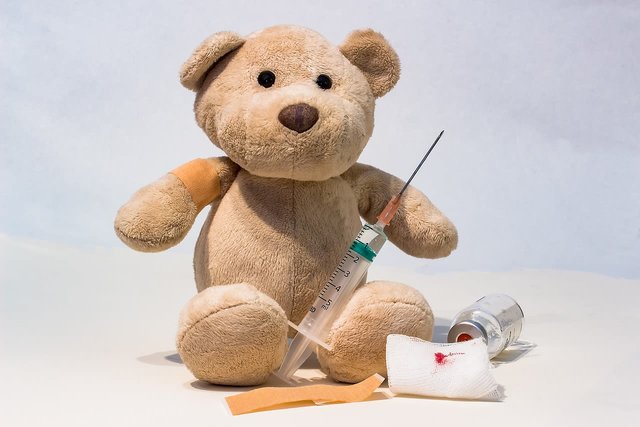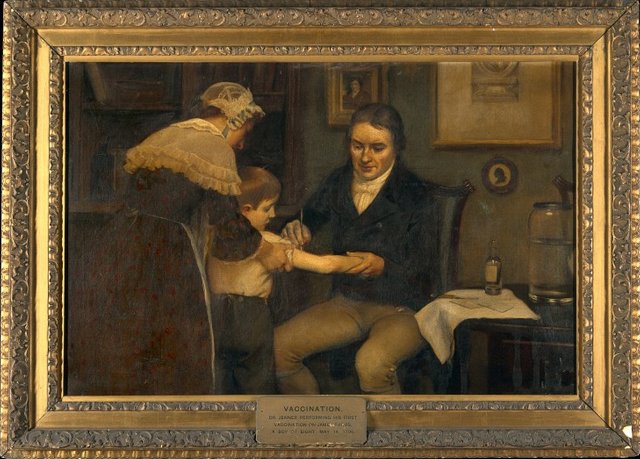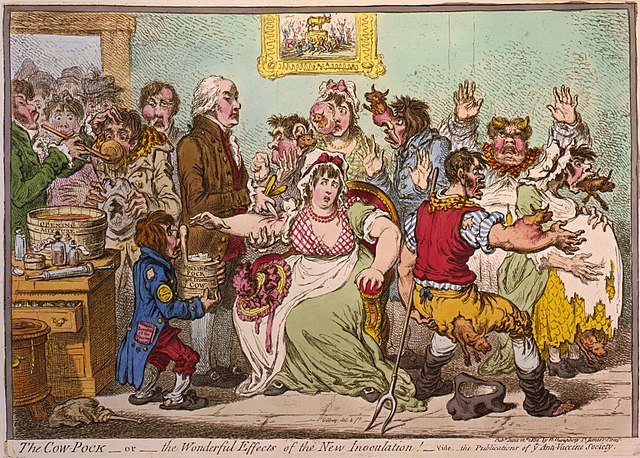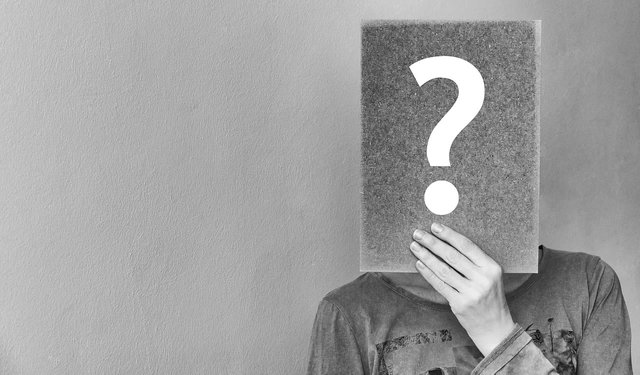Today we have a wave of the so-called "anti-vaxxers" reaching to the doctors' office. But why? And how it started?

Today we are going to learn how everything started, going a bit back in history, explaining the fears of people, understand how the movement came to be & maybe to give solutions to eliminate the anti-vaxx movement.
So... here we go!
History of (Anti)Vaccinations

Edward Jenner is a name that will sound familiar to all, as he was the first person that made a successful vaccination on smallpox. So well, even back then in 1796 there were people against it.
In London, around the time, the Vaccination Act of 1853 was passed which obliged children to be vaccinated for prevention. Only to be withdrawn and corrected for people to decide not to take vaccination years later in 1896.

The Polio incident
What is called "The Cutter Incident" in the U.S in 1955
Basically, 200,000 children had an inactivated live polio vaccine which unfortunately was contaminated with the real polio pathogen. This caused 40,000 cases, with 200 children with the disease & 5 deceased.
It is called "Cutter" as it was the name of the company that manufactured it.
 The DTP incident
The DTP incident
Later on, in 1970, the debate of the vaccines was open again. But this time with the DTP vaccine (Diphteria Tetanus & Pertussis). This time because the whole-cell pertussis was the etiology for the pathogenesis of neurological problems.
The health authorities (like for example the NHS in UK) were notified and a new alternative was researched. Today, we have DTaP (aP = acellular Pertussis) which has the parts of toxins and others of the pathogen Bordetella Pertussis. With this, immunity is achieved & safety reached as well.
MMR (Measles, Mumps, Rubella)
This case is the most infamous.
In the U.S., around the year 2000, it was considered that all Measles cases were eradicated on the country, and that only the cases present were from people emigrating to the U.S.
However, there were raising concerns by the people about the Mercury preservatives (thiomersal) added in vaccines, that were bacteriostatic. These were also catched up by the medical community and hence the heavy metal preservatives were slowly withdrawn.
It was found though, that there were no links between autism and thiomersal.
Unfortunately, this didn't end up here...

They knew something was wrong even in the past!!
Joking aside...
In 1999, the infamous study that links autism and vaccines was published, and with it, came the wave of "Anti-vaxxers".
But as you know, the study was flawed. As it was already put at Nature & Congency Team:
- The study group was too small (12 children)
- There wasn't even a casual link between autism and the MMR vaccine
- The children were not randomly chosen
- Apparently, some of them had developmental problems even before the application of the vaccine
- The study was not done ethically, educating the patient that there would be invasive procedures involved
Why they Refuse a Vaccine?

The reason is relatively simple: social media, the Dunning–Kruger effect, & unverified (and unreferenced) user generated content.
It is also the reason of the spreading of "fake news".
We have today the tools of sharing anything and everything with just a couple of words and a couple of clicks. Even though it enabled us to use it to share information faster than ever, it can be misused.
Articles show that if you increase the amount of sources telling the same story to the end users, it makes them believe in whatever the article is saying. The example given in that article is analyzing conspiracy theory posts on Facebook about for example the U.S. creating HIV as a weapon.
Other articles analyze pages that disseminate fake news, pages that give factual (true) information, and pages that give (troll) satirical news.
The findings may surprise you!!! (I am so sorry!)

They find that science reaches a high amount of diffusion (which they say, doesn't mean interest) while fake news reaches a high amount of people, but over time.
These things combined just makes it worse for us, as fake news continue to spread, forming "echo chambers" that just regurgitates the same information without fact-checking. Even worse than that, apparently in social presence, people tend to fact-check less.
Finally, as if it wasn't bad enough, a third of the general public tend to think they know more than doctors or scientists about the etiology of autism. This study even links it to the role of celebrities.
How to Deal with "Anti-Vaxxers"?

Studies suggest to add algorithms in social media that display wether or not the links are rated as "verified" or "not-verified" by the users while also excluding ratings from people that are not familiar with certain sources, because (as they say) it reduces dramatically marking them wrong.
This would reduce the online presence of Anti-vax information, but what do we do when we have an anti-vaxxer in the doctor's office?
Studies show that educating the patient about the risks of non-vaccination, showing for example pictures of kids with mumps or measles.
Other recommendation would be to engage even more with the patient. To listen more to their concerns and to "be a good listener". Same approach as with patients that not comply with medication.
If the patient doesn't trust or even like the doctor, it is very unlikely he/she will accept a vaccination.
Even more so if it changes a core belief that was shaped through waves of misinformation through social media.
Closing
I really hope it wasn't boring!
I started the research on it as I was very curious on how and why the Anti-Vaxxers came to be, and finally got a complete answer
Anyway, this is @deholt
signing off!
Images
They are organized and referenced in order of apparition
- Teddy Bear vaccinated (CC0) - at Pixabay by Myriams-Fotos
- Jenner giving a Vaccine (Public Domain) - by Kuebi at WikiMedia Commons
- Poliovirus virions (Public Domain) - at WikiMedia Commons by F.P. Williams, from U.S. EPA
- Kid with Pertussis (whooping cough) (Public Domain) - by the CDC at WikiMedia Commons
- The Cow Pock! Cartoon against vaccination in 1800 (Public Domain) - at PubMed by James Gilray (1756-1815)
- No in Whiteboard (CC0) - by geralt at Pixabay
- Question Mark - by Anemone123 at Pixabay
- Stethoscope - by jossuetrejo_oficial at Pixabay
References
The infamous study was used to point at its flaws, so ignore it basically.
- [RETRACTED] Ileal-lymphoid-nodular hyperplasia, non-specific colitis, and pervasive developmental disorder in children - by Wakefield AJ, Murch SH, Anthony A, Linnell J, Casson DM, Malik M, Berelowitz M, Dhillon AP, Thomson MA, Harvey P, Valentine A, Davies SE, Walker-Smith JA. at PubMed
- The Anti-vaccination Movement: A Regression in Modern Medicine - by Azhar Hussain, Syed Ali, Madiha Ahmed, and Sheharyar Hussain at PubMed
- History of Vaccines - by historyofvaccines.org
- The Cutter Incident - by Michael Fitzpatrick at PubMed
- Neurological complications of pertussis inoculation - by Kulenkampff M, Schwartzman JS, and Wilson J. at PubMed
- Mercury, Vaccines, and Autism One Controversy, Three Histories - by Jeffrey P. Baker, MD, PhD at PubMed
- Thimerosal-Containing Vaccines and Autism: A Review of Recent Epidemiologic Studies - by Anne M. Hurley, PharmD; Mina Tadrous, PharmD, MS; and Elizabeth S. Miller, PharmD at PubMed
- The golden age of anti-vaccine conspiracies - by Richard A. Stein at PubMed
- The spreading of misinformation online - at PubMed by Michela Del Vicario, Alessandro Bessi, Fabiana Zollo, Fabio Petroni, Antonio Scala, Guido Caldarelli, H. Eugene Stanley, and Walter Quattrociocchi
- Perceived social presence reduces fact-checking - by Youjung Jun, Rachel Meng, and Gita Venkataramani Johar at PubMed
- Knowing less but presuming more: Dunning-Kruger effects and the endorsement of anti-vaccine policy attitudes - by Motta M., Callaghan T., Sylvester S. at PubMed
- How Do We Approach Anti-Vaccination Attitudes? - by Christopher A. Swingle, DO at PubMed
- Fighting misinformation on social media using crowdsourced judgments of news source quality - by Pennycook G., Rand DG. at PubMed

Congratulations @deholt! You have completed the following achievement on the Steem blockchain and have been rewarded with new badge(s) :
You can view your badges on your Steem Board and compare to others on the Steem Ranking
If you no longer want to receive notifications, reply to this comment with the word
STOPDo not miss the last post from @steemitboard:
Vote for @Steemitboard as a witness to get one more award and increased upvotes!
Downvoting a post can decrease pending rewards and make it less visible. Common reasons:
Submit
This post has been voted on by the SteemSTEM curation team and voting trail in collaboration with @curie.
If you appreciate the work we are doing then consider voting both projects for witness by selecting stem.witness and curie!
For additional information please join us on the SteemSTEM discord and to get to know the rest of the community!
Downvoting a post can decrease pending rewards and make it less visible. Common reasons:
Submit
Good article and excellent references! It might be an eye-opener for people with limited view on the vaccination topic. However, "Anti-Vaxxers" probably won't even take their time to read neither this article, nor the references.
Thank you.
Downvoting a post can decrease pending rewards and make it less visible. Common reasons:
Submit